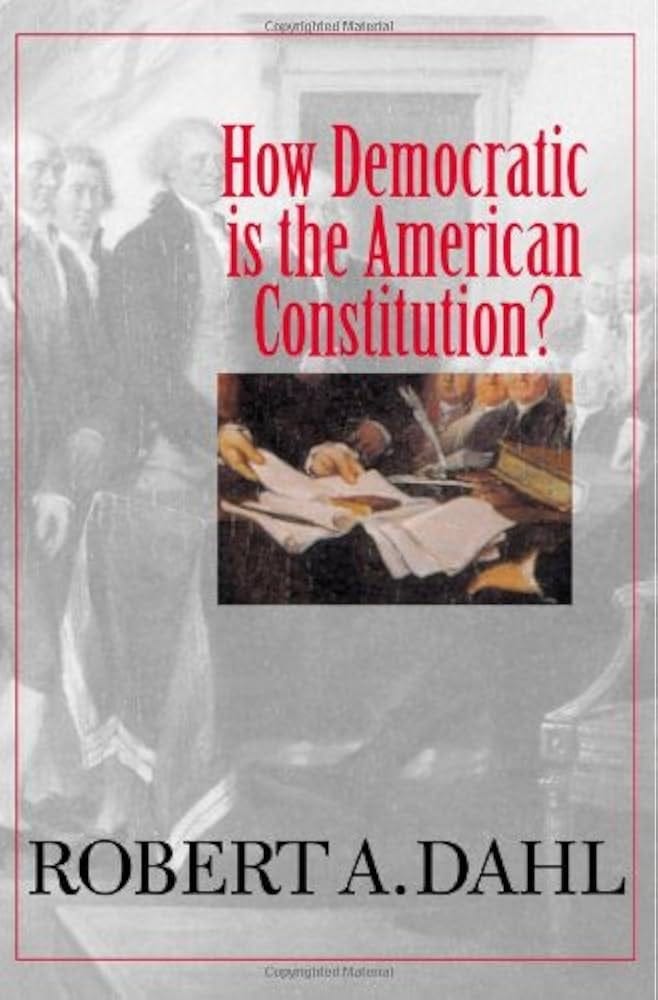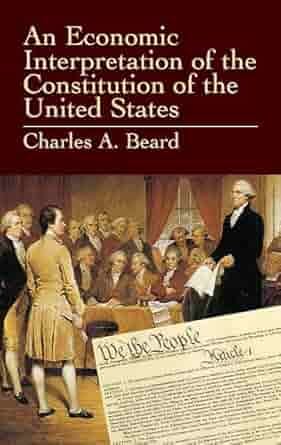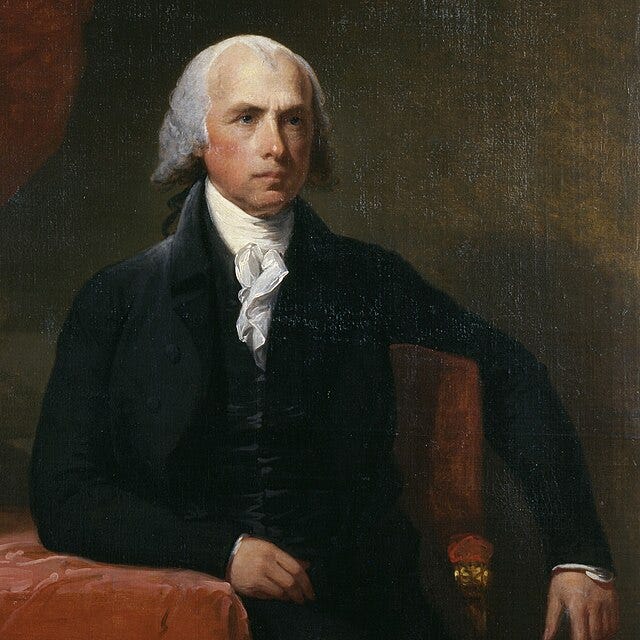The US Senate was created to block the will of the majority. It is time to abolish the Senate. Here's why...
The men who framed the United States Constitution get a lot of credit for being democratic visionaries. But for every John Adams, who believed that “the only moral Foundation of Government is the Consent of the People,” there was an Alexander Hamilton who believed the public was a “great beast” that must be tamed. These men, sometimes called the Founding Fathers, are treated with great reverence – almost as gods among men. But they were not gods, they were most definitely men. And these men had their own motivations for creating the government that we have today.
According to James Madison, one of the primary reasons for making the new government was “to protect the minority of the opulent against the majority.” Madison said, “our government ought to secure the permanent interests of the country against innovation.” Landholders need a check on the power of the democratic majority, he continued. How would they accomplish this? “The senate, therefore, ought to be this body…” So, according to James Madison, sometimes called the Father of the Constitution, the US Senate was created so that the rich would have a check on American democracy.
It’s known as the Great Compromise, as if the innovation that the framers came up with in Philadelphia 1887 was so amazing it must always be referred to in capital letters as "Great." The question at hand during the Constitutional Convention was how power would be distributed inside the legislature. On one side, the larger states favored having two chambers where both had representatives based on the population of each state – more people, more representatives. The smaller states were dead set against that and favored a single chamber legislature with each state having equal representation, no matter how large their population. This was how things were done in the Continental Congress and under the Articles of Confederation. After going around and round for weeks the Great Compromise tried to thread the needle by taking the bicameral legislature and population-based representation from one side and coupling that with a senate where every state got equal representation from the other. The idea wasn’t exactly a smash hit with the delegates, but it got the job done, passing by just one vote. Thus, the Constitutional Convention was saved and our founding document eventually passed… (eyeroll) great compromise.
The framers were terrified of actual democracy as Yale professor Robert Dahl describes this in his book How Democratic is the American Constitution? He writes, “Conservative delegates among the Framers… feared that if ordinary people were given ready access to power they would bring about policies contrary to the views and interests of the more privileged classes, which, as the conservative delegates viewed their interests, were also the best interests of the country.” Because the framers saw the public as an unruly mob, Dahl says, it was necessary to fashion constitutional barriers to popular rule. The framers wanted a nation that had the shape of democratic governance, but not the substance.

Democracy means rule by the many, where ideally the mass population has a hand in making decisions and actual power over what happens. On the other hand, elites have always believed that what is best for them is best for everyone. Their fear is that if a broad population were given the power to make decisions, they won’t do what elites believe is best. What that really means is that elites know the masses won’t do what’s best for elites. This is why framers made a republic. The difference between republic and democracy is that representatives are chosen, supposedly by a democratic majority, to make the decisions that the majority wants. The truth is republics are a way of preserving minority rule.
Consider for a moment just who the Founding Fathers were. Who could afford to travel to Philadelphia and stay for four long months to write a new constitution in the summer of 1787? Surely no wage laborers could be away from work for so long. In his book An Economic Interpretation of the Constitution of the United States historian Charles Beard writes, “The overwhelming majority of members, at least five-sixths, were immediately, directly, and personally interested in the outcome of their labors at Philadelphia, and were to a greater or less extent economic beneficiaries from the adoption of the Constitution.” Beard says that at least 80 percent of the delegates who wrote our Constitution stood to gain something by its creation. This was not a purely patriotic exercise.

Our first president, George Washington, who presided over the Constitutional Convention, was the Elon Musk of his day. At a time when holding property was the measure of wealth, nobody held more property than Washington. As Beard notes Washington, “was probably the richest man in the United States in his time, and his financial ability was not surpassed among his countrymen anywhere.” I don’t know about you but I don't remember hearing that in any history class I ever attended.
James Madison didn’t have a vast personal fortune, but he was from one of Virginia’s wealthiest families. It was their huge plantation and slave holdings that made it possible for Madison to spend all his time on politics and research. He could never have afforded to be a founding father if his own father hadn’t been footing the bill, what you might call a trust fund baby of his day.
A strong bicameral legislature (meaning the upper body has a dominant veto power over the other) is a common feature in the United States – used in 49 out of 50 state legislatures and the US Congress. But it is an anachronism in the rest of the world’s governments, who choose not to let an upper body block the democratic choices of their popular assemblies.
But that was, of course, precisely the point. As framer Edmund Randolph said about the Senate, “The object of this second branch is to controul the democratic branch of the National Legislature. If it be not a firm body, the other branch being more numerous, and coming immediately from the people, will overwhelm it.”
Alexander Hamilton, protagonist of his own hip hop Broadway musical, spoke approvingly of the class-based House of Lords that inspired the Senate. He liked how it formed “a permanent barrier against every pernicious innovation whether attempted on the part of the Crown or of the Commons.” He went on to observe that “All communities divide themselves into the few and the many. The first are the rich and well born, the other the mass of the people.” Since, he reasoned, the people were fickle and rarely ever made good decisions, he said, “Give therefore to the first class a distinct, permanent share in the government… Nothing but a permanent body can check the imprudence of democracy.”
We are taught to perceive this protection of "minority rights" as a good thing. We are encouraged to internalize the idea that the founders were bravely protecting the American public from an imagined “tyrannical majority,” and that we should be grateful we are protected from ourselves. But this perspective forces us to buy into our own oppression. The only minority rights that the framers really cared about were the minority they represented – the rich. Robert Dahl sums it up, saying, “The main reason, perhaps the only real reason, why second chambers exist in all federal systems is to preserve and protect unequal representation… In a word, they are designed to construct a barrier to majority rule at the national level.”
Because of the way the framers constructed our government the US Senate has equal power with the House of Representatives. Both must consent to pass any law. But the completely unequal distribution of power inside the Senate makes it one of the least democratic institutions in the free world. There is a term for when states with small populations represent the same number of people as states with big populations: Malapportionment. Comparing the US Senate to other legislative bodies around the globe, Robert Dahl found that only three countries, Argentina, Brazil, and Russia had less democratic chambers. Law professor Sanford Levinson from the University of Texas wrote, “The Senate constitutes a threat to the vitality of the American political system in the 21st century.” Chiming in from the University of Maryland, political scientist Frances E. Lee agrees, saying “I can’t think of any way to justify it based on democratic principles.”
What are some of the minority views the Senate has protected? Robert Dahl points out that between 1800 and 1860 eight anti-slavery measures were passed in the House of Representatives. All eight were struck dead by the Senate. Until the Civil War the south pretty much had veto power over any laws concerning slavery. After the Civil War a similar voting bloc helped block human rights protections for African American citizens for nearly a century. We can thank Senate malapportionment for stifling reform on working conditions or civil rights protections or blocking basically anything that benefits the broad majority of the American public rather than the rich.
This happens at the state level too. For example, to stop school integration in Virginia their state senate voted to close ALL public schools in 1956. The 21 state senators who passed that measure represented far fewer constituents than the 17 who opposed such drastic action. As Dahl says, “Unequal representation in the Senate has unquestionably failed to protect the fundamental interests of the least privileged minorities. On the contrary, unequal representation has sometimes served to protect the interests of the most privileged minorities.”
The US Senate was created to stop large majorities from making necessary changes. The US Senate is a big reason why the rich have so much power in this country. After all, that's precisely what the US Senate was designed to do.
This is why the Senate must be abolished - something that cannot happen without a new American Constitution. Worth it!
This is part one of a series on why we should abolish the Senate... please make sure to follow to hear the hilarious origin story of the filibuster and how few Americans actually had the right to vote in the earliest days of the new republic.
Please give a like, comment, and repost to help other people find me here on Substack.
What do you say? Let’s make them pay.
















Share this post